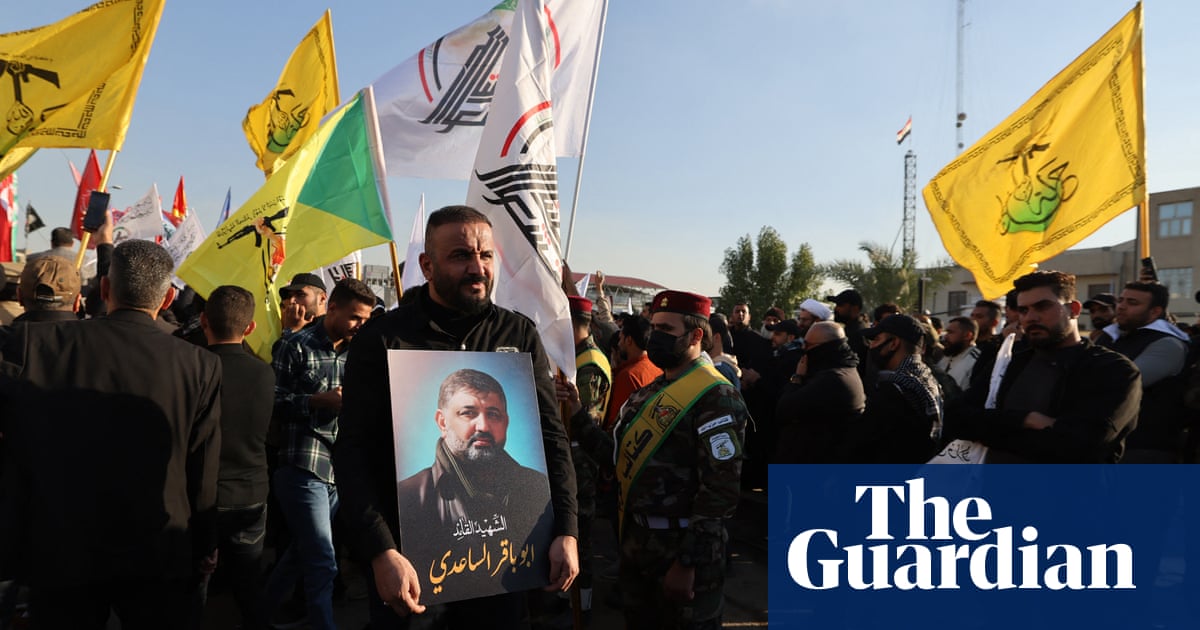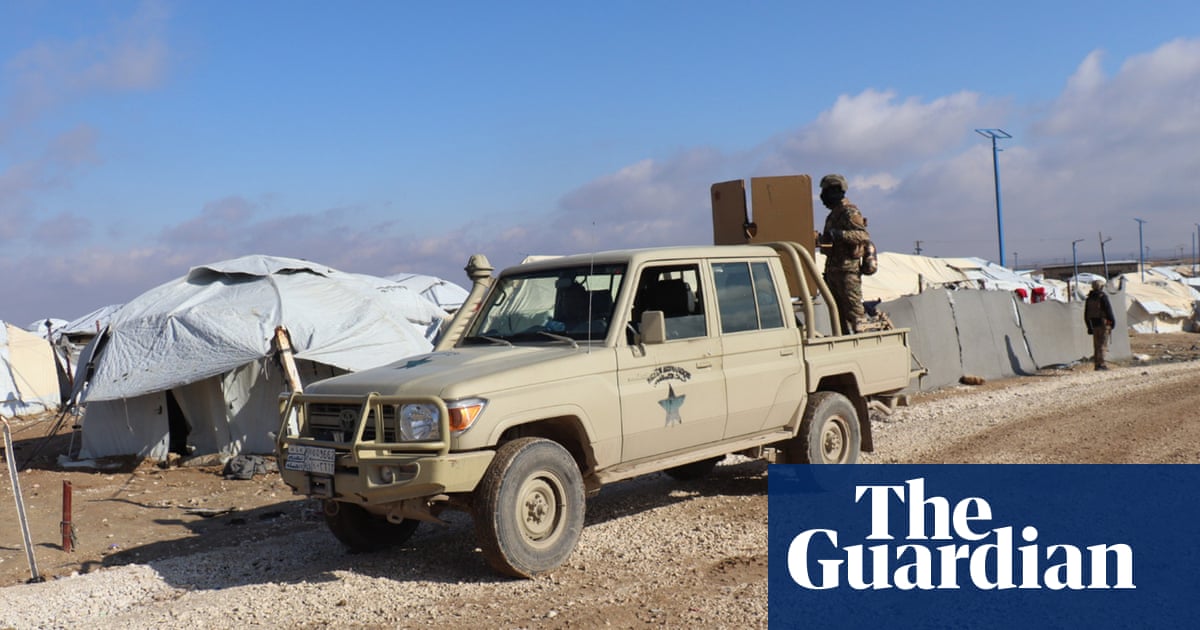
A large crowd gathered in eastern Baghdad on Thursday for the funeral of Abu Bakr al-Saadi, who was killed the night before in a drone strike in a residential street in Baghdad.
Al-Saadi was a senior military commander with the Kataib Hezbollah, a prominent faction of the Islamic Resistance in Iraq with close political, religious and military ties to Iran.
The Islamic Resistance, which includes other organisations, has claimed responsibility for scores of attacks on American military bases in Iraq and Syria since the 7 October Hamas attack on Israel set off the war in Gaza.
Footage from Wednesday’s strike showed a car engulfed in flames in a quiet residential street. A large crowd later gathered at the scene before marching towards the gate of the Green Zone – a heavily fortified area home to the seat of government and a number of foreign embassies – late at night. They later dispersed peacefully.
US Central Command claimed responsibility for the Baghdad killing, saying it had targeted and killed a Kataib Hezbollah commander behind the 27 January attack on a US base on the Jordan-Syrian border that led to the death of three US soldiers – Sgt William Jerome Rivers, Sgt Kennedy Sanders and Sgt Breonna Moffett – and injury to dozens.
Al-Saadi was the commander in charge of Kataib Hezbollah’s drone operations in Syria, and so is likely to be the mastermind of the 27 January attack.
The US said there were “no indications of collateral damage or civilian casualties at this time”, adding: “The United States will continue to take necessary action to protect our people. We will not hesitate to hold responsible all those who threaten our forces’ safety.”
At the funeral, Shia clerics and at least one Sunni, as well as tribal leaders and fighters in a variety of military uniforms, listened to speakers who climbed on to the back of a pickup truck to give eulogies in honour of the dead commander.
“Abu Bakr represented a new generation of resistance fighters … since 2003, he had conducted hundreds of operations, killing scores of Americans both in Iraq and Syria,” said one senior leader of Kataib Hezbollah.
“After 2011,” continued the speaker, “Abu Bakr became one of the most important military leaders who took responsibility for training our oppressed brothers: Yemenis, Afghans, Pakistanis, people from Hijaz [in Saudi Arabia] and Bahrainis. Abu Bakr played a crucial role in training and supporting our brothers in Bahrain against the rulers there. And today, in support of our brothers in Gaza, we have conducted more than 200 operations, 25% of which were commanded by Abu Bakr.”
The crowds responded with slogans denouncing America and Israel and chanting: “Allah, Allah-u-Akbar, America is the Shaytan-u-Akbar [America is the great Satan].”
“We will continue the jihad,” said the speaker, “until the last American soldier leaves the country.”
Banners of the Kataib and other factions flew overhead, as well as the flags of the Popular Mobilisation Forces (PMU), an official Iraqi security force, whose chief of staff, Abu Fadak, stood in the middle of the crowd thronged by a ring of bodyguards in black uniforms.
Abu Bakr’s service as a military commander in the PMU has put the Iraqi government in an awkward position at a time when it is trying to negotiate an end to the US presence in the country, which began in 2003.
In a statement issued after Abu Bakr’s killing, the military spokesperson of the Iraqi prime minister said American forces “repeatedly, irresponsibly, commit everything that might undermine the understandings and the start of bilateral dialogue”.
The “clearcut assassination” was carried out in a way that showed the US “does not care about the lives of civilians and international laws,” he continued.
The statement accused the US of having become a “factor of instability for Iraq” that threatened to drag the country “into the circle of conflict”.











